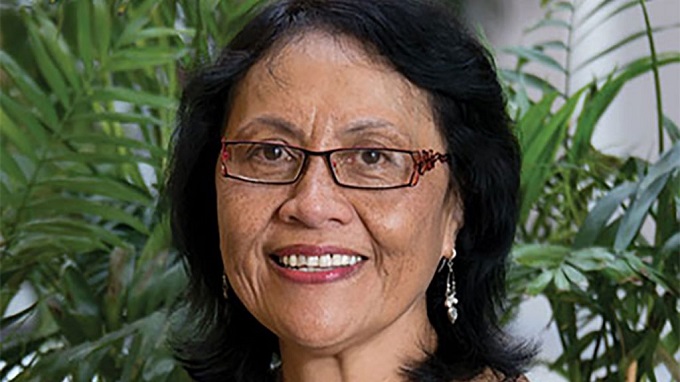
Dr Ofa Dewes, image courtesy of University of Auckland
Dr Dewes, who is also a Research Fellow in the University of Auckland’s Faculty of Medical Health Sciences, says education and a pathway for managing obesity is not provided by the health system.
“For the first time, our research will help us prove, understand and communicate the idea that predisposed genetic response to how sugar is absorbed is highly likely to be the main cause of obesity in Maori and Pacific peoples,” she says.
“While we all absorb glucose in the say way, we don’t all absorb fructose – which gives sugar its sweetness – the same way. So if fructose is absorbed more easily and more quickly, then it can be a health risk for that person.”
She is hoping that between 500 and 1000 Wellington students will be able to take part in the study. Students from Porirua, Mana and Bishop Viard colleges have participated so far.
The testing on sugar effects is done using a breathalyser type machine with students doing a baseline test first and then drinking a measurement of liquid fructose. Three more readings are taken over one and a half hours. Other measurements such as weight and height are also recorded.
Dr Dewes says one of the key aims of the project is to encourage young Pacific students to think about a career in science. Students get to take their own measurements so they can see how readings change each time and the hope is that this will trigger their curiosity in research, data collection and science.
“We need more young people in the sciences, especially Pacific people and women and we make the process friendly and we hope they will continue questioning the relationship between science, diet and genetics,” she says.
A new report from the University of Auckland’s Our Voices Project asks young people what…
The government has opened a tender for new standardised assessment tests, leaving educators shocked and…
Early in her career, Kiri Turketo found inspiration in an unlikely source. In this Principal…
Real stories of dedication, challenges, and triumphs from educators in NZ. Part six comes from…
Is fast furniture impacting your school's environmental footprint? We explore eco-friendly solutions to reduce furniture…
A new report from the New Zealand Initiative argues we need a stronger and clearer…
This website uses cookies.